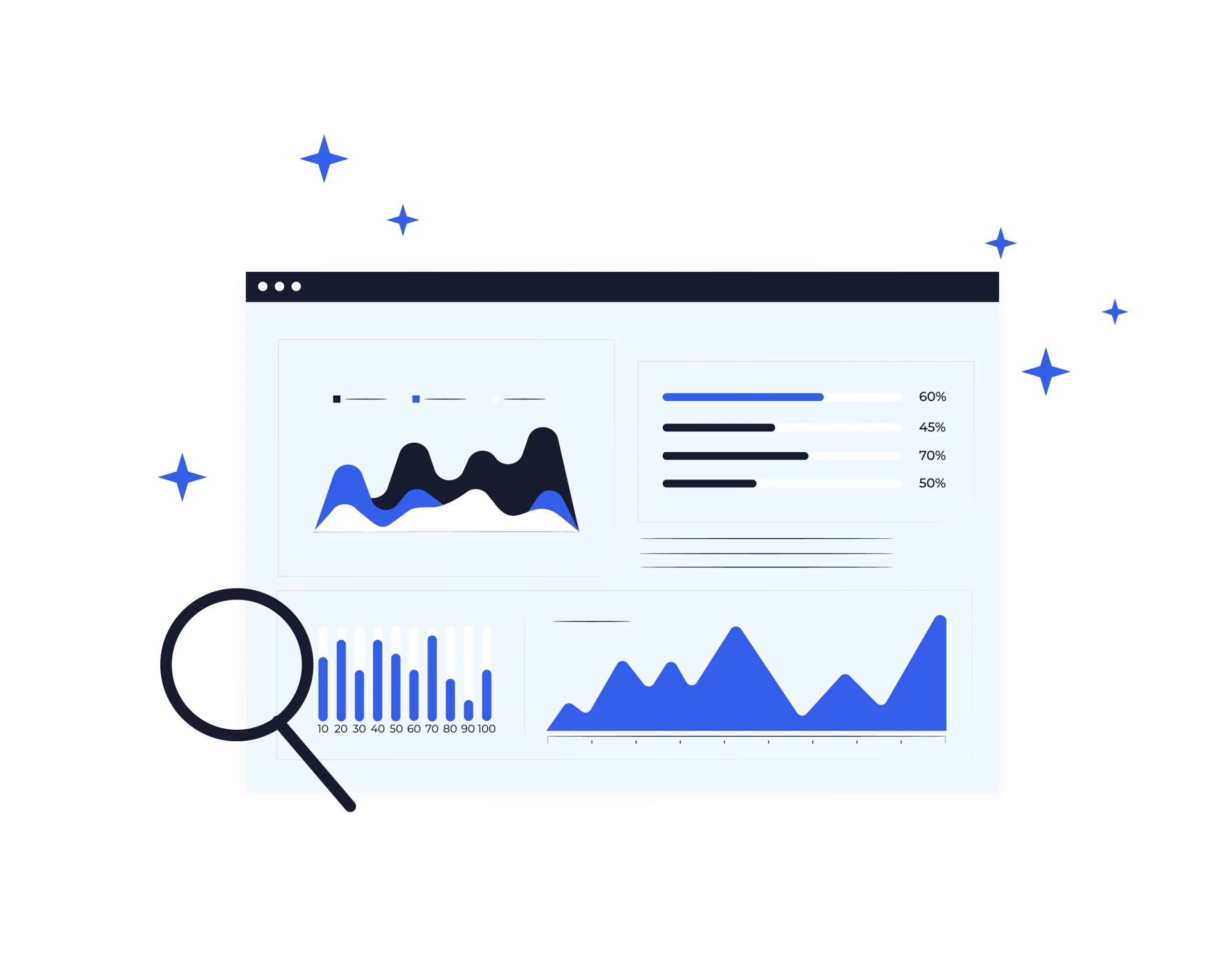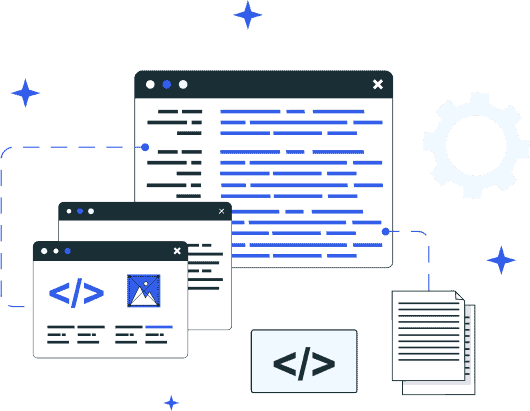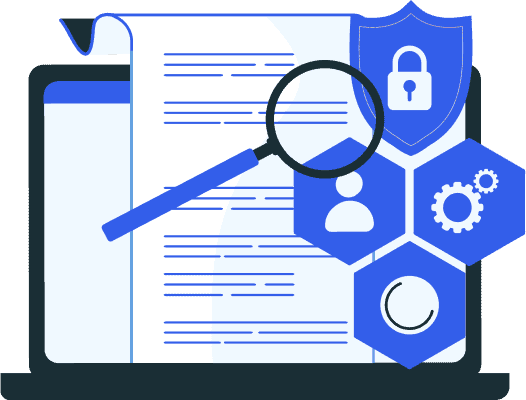The Role of Proxies in Web Scraping
Web scraping is the process of extracting data from websites automatically. This can be done using various tools and techniques, but proxies are often used to help improve the success of web scraping projects.
A proxy is a server that acts as an intermediary between your computer and the internet. When you use a proxy, your requests are routed through the proxy server before they reach the website you are trying to access. This can help to hide your real IP address and make it more difficult for websites to block your requests.
Using Proxies for Web Scraping
Proxies can be used for web scraping in several ways:
- Hide your real IP address: This can help prevent websites from blocking your requests or identifying you as a scraper.
- Access websites that are blocked in your region: Proxies can be used to connect to websites that are blocked in your region.
- Bypass rate limits: Some websites have rate limits that restrict the number of requests that can be made from a single IP address. Proxies can bypass these rate limits by rotating through different IP addresses.
- Improve performance: Proxies can improve the performance of web scraping projects by caching data and reducing the distance that requests have to travel.
Proxies can assist you in avoiding website blocks, collecting data from several websites simultaneously, concealing your identity, protecting your privacy, and enhancing your web scraping project’s performance.
Benefits of Using Proxies for Web Scraping
Web scraping involves automatically pulling data from websites. This can be achieved using various tools and methods, but proxies are often used to boost the effectiveness of web scraping projects.
Avoid IP Blocking
Websites might block IP addresses they suspect are being used for scraping. Scraping strains a website’s resources and can lead to malicious activities like data theft. Proxies provide different IP addresses for each request, helping you avoid IP blocking and fly under the radar of sites trying to hinder scrapers.
Access Websites in Different Countries
Certain websites are restricted to specific countries. For instance, a site selling products legal only in certain nations might bar users from others. Proxies furnish you with an IP address from the desired country, enabling access to region-restricted websites during scraping.
Bypass Throttling
Websites may slow down requests from the same IP address to prevent server overload. Proxies rotate through various IP addresses, enabling you to bypass throttling. This ensures a consistent scraping speed even when the website attempts to slow you down.
Boost Scraping Speed
Proxies enhance scraping speed by caching data and reducing request distances. This proves particularly valuable for scraping data from internationally located websites.
Hide Your Identity
Proxies mask your real IP address, helping hide your identity. This is beneficial when scraping data from sites as opposed to scraping. It prevents bans or rejected data requests.
In addition to these advantages, proxies enhance your web scraping project’s reliability and stability. Utilizing proxies lowers the risk of websites blocking or throttling your project. Moreover, you can improve project performance by caching data and shortening request distances.
Types of Proxies for Web Scraping
Residential Proxies
Residential proxies are the most dependable for web scraping. They connect to real internet users, leading to a dynamic IP address that changes frequently. This constant change makes it hard for websites to block them, and they’re less likely to raise suspicion since actual people use them. However, these proxies are also the costliest due to their rarity and upkeep.
Datacenter Proxies
Datacenter proxies are less reliable than residential ones but are more affordable. They link to servers in data centers, providing a static IP address that remains unchanged. While they’re easier to obtain and maintain, they are more likely to be blocked by websites and could be flagged as suspicious since real users do not use them.
Anonymous Proxies
Anonymous proxies shield your actual IP address, making it invisible to the scraped website. They’re a good choice for safeguarding your privacy. Yet, they’re not as dependable as residential proxies and can face blocks.
Rotating Proxies
Rotating proxies come from a pool that switches with each request, thwarting website blocks. These are good options if you aim to avoid being blocked. However, they tend to be pricier than static proxies.
Shared Proxies
Shared proxies are utilized by multiple users sharing the same IP address. They’re the most budget-friendly option but are also the least reliable and are more prone to blocks.
Dedicated Proxies
Dedicated proxies are for a single user, offering the highest reliability. They are, however, the most expensive choice.
Choosing the Right Proxy Type:
The most suitable proxy for web scraping depends on your needs and budget. If web scraping is a serious endeavor, residential proxies are recommended due to their reliability and lower block likelihood. On a budget, you might consider datacenter or shared proxies, though their reliability could be compromised by potential blocks.
Choosing the Right Proxy for Web Scraping
Consider Your Budget
Begin by thinking about your budget. Proxies come at various price points, spanning from free to quite expensive. If you’re working with limited funds, shared or rotating proxies might be suitable. But if you’re committed to effective web scraping, be prepared to invest more in a reliable proxy.
Think About Necessary Features
Once your budget is clear, focus on the features you need in a proxy. Key aspects to contemplate include:
Proxy Type: Residential proxies link to real users, while datacenter proxies connect to data centers. Residential proxies are usually more dependable and less prone to website blocks, albeit pricier.
Proxy Location: The proxy’s location affects the speed and reliability of your scraping. For region-specific websites, opt for a proxy located in the same country.
Anonymity Level: Some proxies offer higher anonymity levels. For sensitive data, choose a proxy with robust anonymity features.
Request Limits: A few proxies have limits on daily requests. If dealing with substantial data, choose a proxy with higher request limits.
Research Different Providers
After budget and features, research various proxy providers. Compare their pricing, features, and reputations. Keep an eye out for:
Reputation: Read user reviews to gauge service quality.
Price: Compare prices to find the best deal.
Features: Ensure the provider offers the necessary features like residential proxies, rotating proxies, and ample request limits.
Customer Support: Check for responsive customer support to address potential issues.
In a nutshell, understanding your budget, needed features, and conducting thorough provider research will guide you in selecting the right proxy for your web scraping needs.
How to Use Proxies for Web Scraping
To ensure smooth and effective scraping without disruptions, here’s a guide on how to use proxies for web scraping:
- Begin by setting up your chosen proxy. This process will differ based on your proxy provider. Typically, you’ll receive a username, password, proxy IP address, and port number from your provider.
- After obtaining your proxy details, configure your web scraper to use them. This procedure will also depend on the specific scraper you’re using. Most scrapers feature a section for inputting the proxy IP address and port number.
Apart from the proxy IP and port, you might need to adjust other settings within your scraper. For instance, you could set the maximum number of requests allowed per minute or hour. You might also need to determine the time delay between successive requests.
- Once your scraper is properly configured, you’re ready to start scraping. As you send requests to the target website, your scraper will route these requests through the proxy. The proxy will then relay the request to the website, receive the response, and send it back to your scraper.
By following these straightforward steps, you can seamlessly set up and utilize proxies for your web scraping activities.
Practices for Effective Proxies Usage in Web Scraping
To make the most of proxies for web scraping, here are some recommended best practices:
Use a Rotating Proxy Pool
Using a rotating proxy pool can be really helpful. Rotating proxies switch between different IP addresses, which reduces the chance of websites blocking you. This way, your requests seem different and come from various sources, just like real users.
Randomize Your Requests
It’s a good idea to change how you make requests so they’re not all the same. If your requests are always structured in the same way, websites might think you’re up to something and block you. By mixing up things like headers, user agents, and how you send requests, your scraping looks more natural.
Add Delays Between Requests
Taking breaks between requests is important. If you scrape too quickly and without breaks, you could overwhelm the website’s server and trigger limits or bans. Adding pauses between requests, like a human would do while browsing lowers the chances of websites thinking you’re a scraper.
Be Mindful of Your Bandwidth Usage
Being mindful of how much data you use is key. Scraping too much can strain both the website’s server and your proxy’s resources. It’s important to optimize your scraping to be effective without putting too much pressure on the systems involved.
Using proxies for web scraping needs a balanced approach that blends technology and ethical considerations. By following these recommended methods, you can run a successful and considerate web scraping operation.
Conclusion: The Role of Proxies in Web Scraping
In the world of web scraping, proxies serve as important tools that connect technology and ethical considerations. By combining various methods and following best practices, web scraping becomes not just efficient but also considerate of the online environment.
Web scraping, the automated process of extracting data from websites, is made possible with the help of proxies. Acting as intermediaries between users and the internet, proxies offer anonymity and improve the scraping process. A proxy redirects requests through a server before reaching the desired website. This action hides the user’s real IP address and discourages websites from blocking those requests.
Using proxies for web scraping brings numerous benefits. The flexibility of proxies is evident in their many uses, from protecting anonymity to bypassing rate limits and enhancing performance. By utilizing proxies, individuals can handle the complexities of data extraction more easily and effectively.
Integrating proxies into web scraping practices requires a thoughtful approach that balances technology and ethics. Employing rotating proxy pools, mixing up request patterns, introducing pauses, and managing bandwidth are all smart strategies. These practices mimic human behavior, optimize resource usage, and reduce the chances of being identified as a scraper.
Lastly, the synergy of technology and ethics when using proxies for web scraping highlights the responsibility of individuals in the digital realm. By embracing these approaches, web scraping can be a powerful tool that respects the digital ecosystem while providing valuable insights and data.









